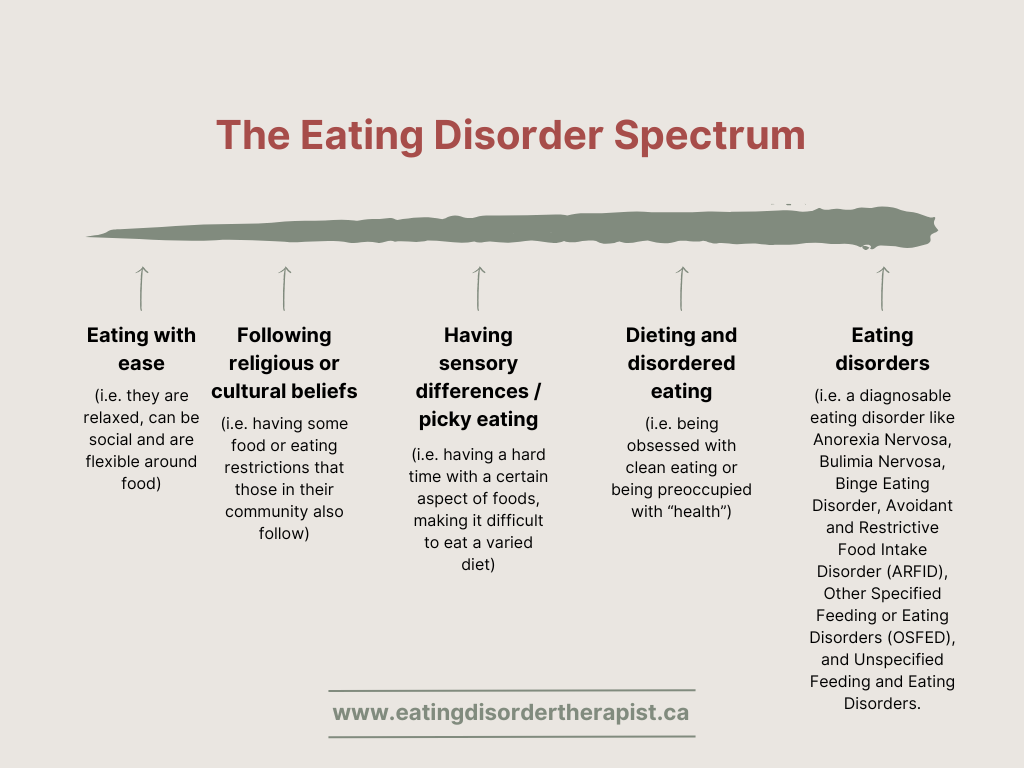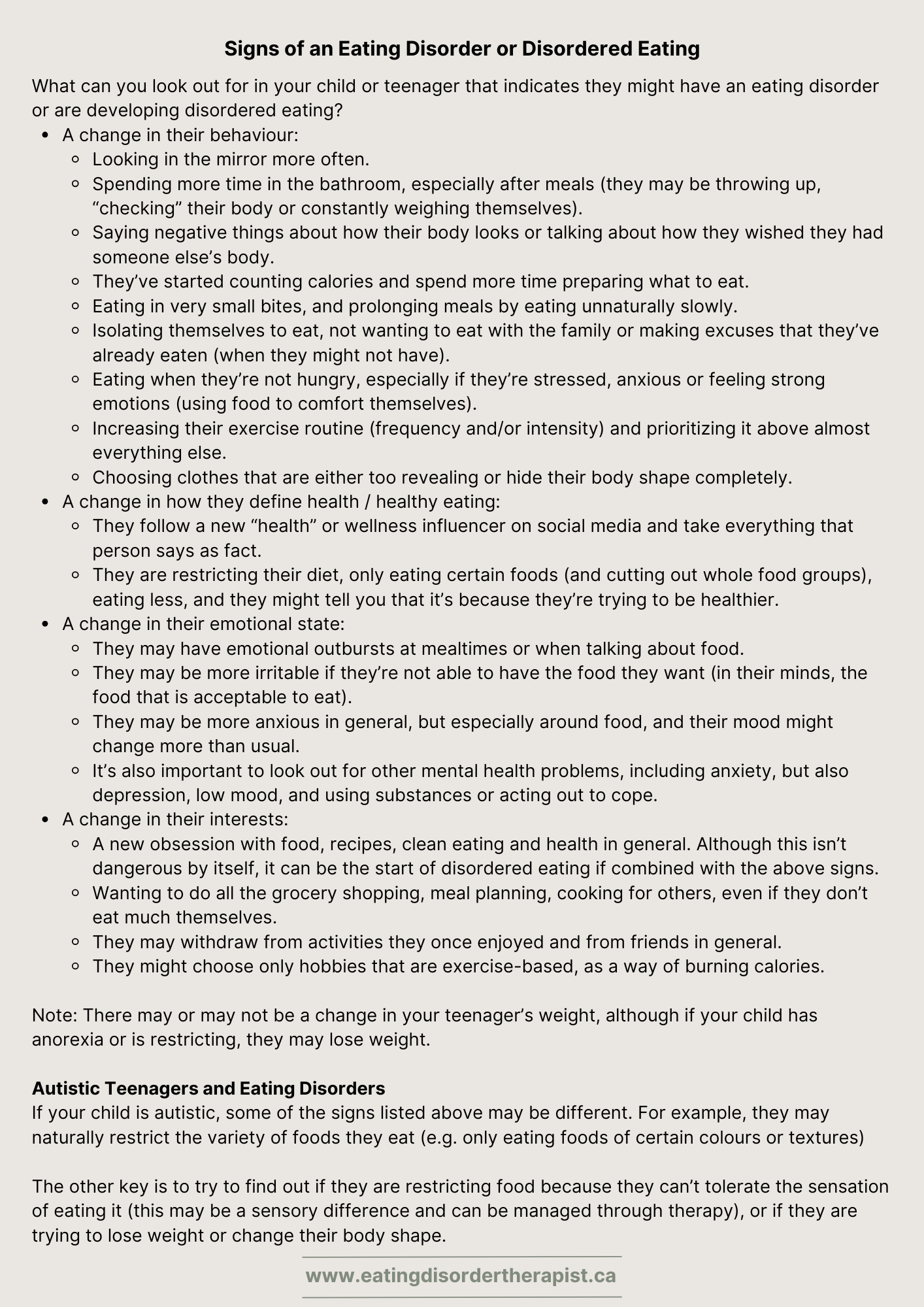How to Know if Your Daughter or Son Has an Eating Disorder
The most common question I’m asked by parents is, “Does my daughter or son have an eating disorder?” While there isn’t a definitive answer, there are signs you can look out for that will guide what you should do next.
An Eating Disorder vs. Disordered Eating
It can be helpful to think about eating along a spectrum: on one side, a person eats with ease (i.e. they are relaxed, can be social and are flexible around food).
On the other side, a person is stressed or anxious around food. This can lead to avoiding eating with others, becoming rigid around what they will eat or having emotional outbursts around mealtimes and food planning.
Signs of an Eating Disorder or Disordered Eating
What can you look out for in your child or teenager that indicates they might have an eating disorder or are developing disordered eating?
A change in their behaviour:
Looking in the mirror more often.
Spending more time in the bathroom, especially after meals (they may be throwing up, “checking” their body or constantly weighing themselves).
Saying negative things about how their body looks or talking about how they wish their body looked like someone else’s.
They’ve started counting calories and spend more time preparing what to eat.
Eating in very small bites, and prolonging meals by eating unnaturally slowly.
Isolating themselves to eat, not wanting to eat with the family or making excuses that they’ve already eaten (when they might not have).
Eating when they’re not hungry, especially if they’re stressed, anxious or feeling strong emotions (using food to comfort themselves).
Increasing their exercise routine (frequency and/or intensity) and prioritizing it above almost everything else.
Choosing clothes that are either too revealing or hide their body shape completely.
A change in how they define health / healthy eating:
They follow a new “health” or wellness influencer on social media and take everything that person says as fact.
They are restricting their diet, only eating certain foods (and cutting out whole food groups), eating less, and they might tell you that it’s because they’re trying to be healthier.
A change in their emotional state:
They may have emotional outbursts at mealtimes or when talking about food.
They may be more irritable if they’re not able to have the food they want (food they deem “acceptable” to eat).
They may be more anxious in general, but especially around food, and their mood might fluctuate more than usual.
It’s also important to look out for other mental health problems, including anxiety, but also depression, low mood, and using substances or acting out to cope.
A change in their interests:
A new obsession with food, recipes, clean eating and health in general. Although this isn’t dangerous by itself, it can be the start of disordered eating if combined with more of these signs.
Wanting to do all the grocery shopping, meal planning, cooking for others, even if they don’t eat much themselves.
They may withdraw from activities they once enjoyed and from friends in general.
They might choose only hobbies that are exercise-based, as a way of burning calories.
Note: There may or may not be a change in your teenager’s weight, although if your child has anorexia or is restricting, they may lose weight.
Autistic Teenagers and Eating Disorders
If your child is autistic, some of the signs listed above may be different. For example, they may naturally restrict the variety of foods they eat (e.g. only eating foods of certain colours or textures).
The key is to try to find out if they are restricting food because they can’t tolerate the sensation of eating it (this may be a sensory difference and can be managed through therapy), or if they are trying to lose weight or change their body shape (indicative of a possible eating disorder.
Please fell free to save this image to have on hand for your own reference.
What To Do if You Think Your Child is Developing an Eating Disorder
If your daughter or son doesn’t acknowledge they have a problem but they are showing many of the signs above, it can help to propose they get a checkup by their family doctor. This will highlight any physical or medical issues they may have developed.
This is also the time you can have a conversation with your child about talking to a professional about their relationship with food, citing the doctor’s findings if their checkup has already led to any medical complications.
If they are still unwilling to get professional help, I have developed a course that re-educates them on unhelpful beliefs they may have developed about food. It’s delivered in almost-daily emails with short videos and was designed for just this situation.
Here is more information about the course (please click on the image below for more information):



